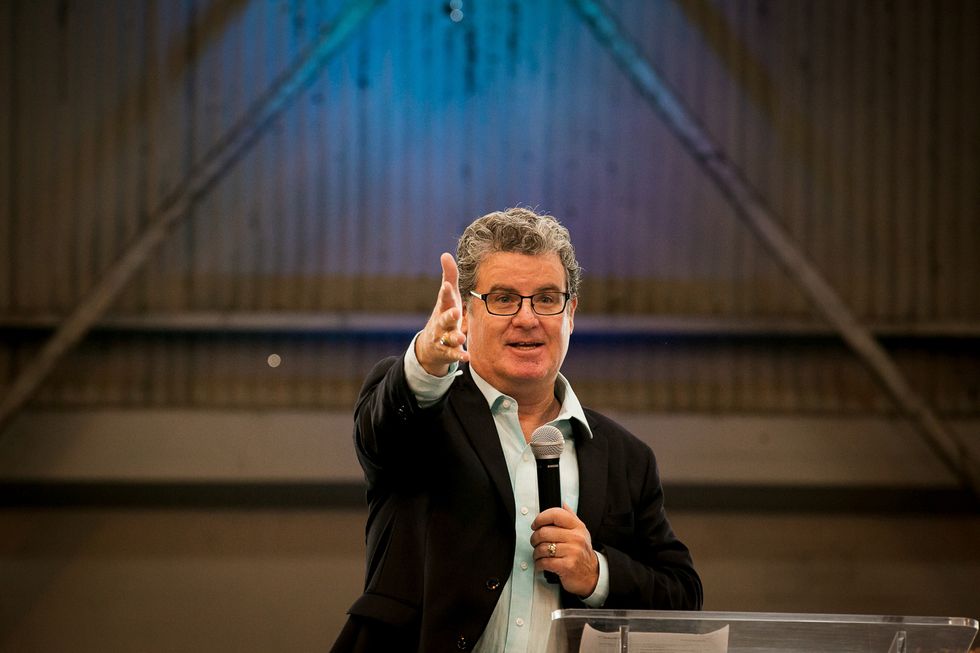Guest Column: Lessons Learned Post 9/11 and Economic Collapse in a COVID-19 World

The COVID-19 crisis and national emergency reminds me of the challenges following the tragedy of September 11. I had the honor then of working for Mayor James K. Hahn in 2001. We didn't expect to be faced with international terrorism and domestic attacks in our 71st day of the administration, but there we were. Like today, there was no road map for how to respond, but a great need to respond quickly and decisively. Our team conferred with one another, listened to the best advice available, and made decisions about what to close, what to keep open, how to communicate messages, adjust budgets, work with other governments and elected officials without getting caught up in politics, and — most importantly — when and how to urge people to get back to "normal."
We saw the economy on the brink of disaster, so we implemented as many things as possible to avert a collapse and assist a recovery: We assembled every public project that could move forward, issued permits as quickly as possible; issued all the community development block grants and other assistance funds that were available; implemented "Shop LA" and "Dine LA" as soon as the risk warnings lessened; and waived as many fees as we could afford to keep L.A. moving.
Then Mayor Hahn was reminding us that the effects of 9/11 would be with us for a long time, but we needed to prepare for the future. We needed to get back to "normal" as soon as it was safe to do so. And, when the new normal was upon us, we needed to be operating in a manner that kept the government structure strong for the people who relied on us in the traditional ways — for police, fire, sanitation, and the like. In other words, we needed to focus on both what was "important now" and on what would ensure a safe and prosperous future.

We need to do the same in this COVID-19 crisis. Once again, we are in uncharted territory. Once again, the threat is international; the impact, local. Then, the front-line responders were police and firefighters; today, it is nurses, doctors and public health providers.
In both crises, regular people are pulling together to help one another. There are the few who hoard groceries and paper goods, but the vast majority of us are checking in on our neighbors, adjusting our schedules for our kids, attending worship services via the internet, buying take-out from our local restaurants, donating, and keeping a safe physical distance from one another while remaining socially connected.
Like in 2001, local, state and federal governments must infuse the economy with direct and indirect support. Governments at all levels need to cooperate with one another to make business and employee assistance programs run quickly and smoothly. We will need shovel-ready public infrastructure projects, and private projects that create jobs to move forward with haste.
We need to keep doing all these things, and more, to ensure safety today. But we also need to be thinking about the future. "Normal" will return. Who and what do we want to be when "normal" returns? Will we be a city that is focused on the future of education? The future of work? The strength and resiliency of our health care system? The preservation of our environment and oceans? The answers to all these can, and should be, yes.
Times are tough today in the markets — financial and grocery — in the hospitals, and across Los Angeles. We need to do what we have done over and over again. Join together for a common goal and sacrifice for the larger whole by following a strict set of guidelines to "flatten the curve" and give our front-line public health heroes a fighting chance. At the same time, we need to keep our eye on the future of who we want to be when this is over. I think that is a city, region, state and country that embraces a future of good jobs, a strong economy, a healthy environment and hope for our next generations.
Now is the time to set that example.
Timothy B. McOsker is CEO of AltaSea at the Port of Los Angeles and the former Chief of Staff to Mayor James Hahn
- coronavirus-updates - dot.LA ›
- coronavirus - dot.LA ›
- 'No time to waste': Bill Gates outlines actions to combat coronavirus ... ›
- Coronavirus Updates: Cedars Joins Drug Trial, U.S. Consumers ... ›
- UCLA Anderson Finds it Will Take 3 Years to Recover from COVID-19 - dot.LA ›




 Image Source: Skyryse
Image Source: Skyryse
 Image Source: Northwood Space
Image Source: Northwood Space